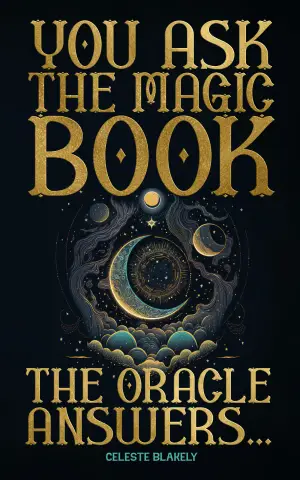Title: Reflections on Madness: Race and Insanity in a Jim Crow Asylum by Antonia Hylton
From the moment I laid eyes on Antonia Hylton’s Madness: Race and Insanity in a Jim Crow Asylum, I felt a magnetic pull toward its promises of uncovering hidden histories and personal narratives. As someone who has navigated the complexities of mental health within my own family, I was intrigued by Hylton’s courageous exploration of the intersections between institutional history and personal experience. With an actual rating of 4.5 stars, this book did not disappoint—it left me with a captivating blend of reflection, agony, and a renewed understanding of the societal structures that shape our mental health landscape.
Hylton’s narrative seamlessly weaves together different strands of history: familial, medical, and institutional. Her exploration of Maryland’s Crownsville Hospital is both a personal journey and a broader commentary on the ways systemic oppression can dictate the course of mental health care. The stories she unearths are not just statistics; they are deeply human experiences that illustrate how people—many of whom were Black Americans—were often unfairly categorized as “mad” for simply existing within a world that marginalized them. The fact that figures like Pauli Murray’s father and Henrietta Lacks’ daughter once walked the halls of Crownsville shocked me; these fun facts morphed into heartbreaking realities that highlighted the wider scope of neglect and trauma in such institutions.
One thing that struck me profoundly was Hylton’s ability to incorporate her own familial experiences into this complex web of history. Her reflections reveal a raw, personal struggle as she grapples with the lack of adequate mental health services—a reality many of us can relate to. Hylton writes, “I felt more shame…because I’ve studied the history of mental healthcare systems…I know such a guarantee never really existed. Not for my loved one, anyway.” This honesty came across as both a burden and a source of strength, resonating deeply with my own experiences of trying to help loved ones navigate their mental health crises.
The book powerfully connects past and present, making the argument that the asylum system was not just a place of containment but a precursor to our current prison industrial complex. Hylton poignantly describes how the closures of asylums like Crownsville gave birth to a system of incarceration that disproportionately affects Black communities—a narrow lens through which society continues to view mental health crises as personal failings rather than systemic issues.
Hylton’s writing style is engaging and accessible, melding academic rigor with heartfelt narratives. The pacing allows readers to absorb the gravity of the subject matter while still feeling a sense of urgency and connection. Phrases like, “…society was making people mad, and then punishing them for being mad,” lingered in my mind long after I put the book down, serving as a reminder of how deeply interconnected our societal structures can be.
I wholeheartedly recommend Madness to anyone interested in the intersections of race, history, and mental health. This book is not just for historians or mental health professionals; it’s for anyone seeking a more profound understanding of the struggles that shape our current realities. Hylton’s blend of personal and political narrative made the reading experience not just informative but transformative for me.
In conclusion, Madness is an eye-opening exploration that exceeds the boundaries of traditional historical discourse. It invites us to reflect on our shared social fabric, urging us to confront uncomfortable truths while advocating for a more compassionate future in mental health care. This book will resonate deeply with anyone who feels the weight of these issues and seeks to dismantle them. Grab a copy, and prepare to be moved.
[ad_2]
Discover more about Madness: Race and Insanity in a Jim Crow Asylum on GoodReads >>







